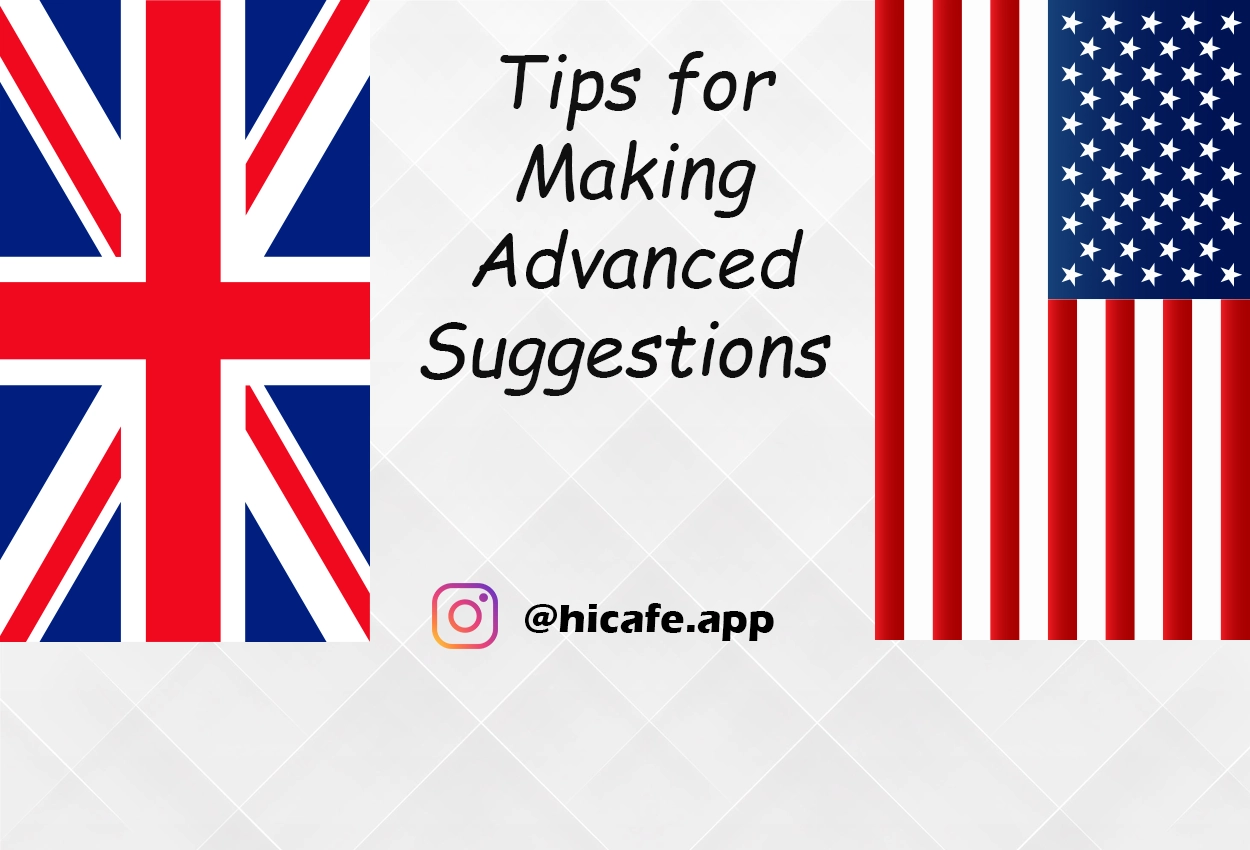
Everyday conversations often involve giving or receiving suggestions and advice. This lesson explores different expressions of advice and suggestion in English, along with some practical tips to keep in mind.
Previous Conversation Tip Lesson
Conversation Tips for Likes and Dislikes
Making Suggestions and Giving Advice in English
You can use the following words and expressions in conversations to make suggestions and give advice to people.
Suggestions
Click here to practice this conversation tip in Instagram.
- Should
You should visit your family more often.
You shouldn’t ignore your health.
- Why don’t you
Why don’t you take a break and relax?
- Ought to
You ought to start saving money.
- If I were you, I’d…
If I were you, I’d learn a new skill.
*All these expressions are followed by a verb, without to.
For example: You should do your homework. (Not you should do your homework.)
- Suggest and recommend
Either use a verb + ing
I suggest trying the local cuisine. (We should all try it.)
OR use that + a verb without to
I suggest that you apply for the job. (I’m not applying.)
OR use a noun
I recommend the cheesecake. (It’s a very good dessert to choose in this restaurant.)
Advice
Click here to practice this conversation tip in Instagram.
Remember the difference between the verb and the noun form of this word.
- advise (verb)
I advise you to sleep early.
- advice (noun)
Could you give me some advice on how to improve my writing?
Advice is an uncountable noun. This means that we can’t give advice. Instead, we say some advice or a piece of advice.
Let me give you some advice.
She offered a useful piece of advice: always double-check your work.
Speaking tip
Click here to practice this conversation tip in Instagram.
Many people don’t like getting advice if they haven’t asked for it! To avoid giving the wrong impression, you can try some of these expressions:
- You could always…
- Have you considered…
- Perhaps we could…
- Do you think it’s a good idea to…
- Have you thought about…
- In your position, I would…
- You should perhaps…
Conclusion
By using the appropriate expressions, you can offer your suggestions in a considerate and constructive manner. Always remember, offering advice should be done thoughtfully and respectfully, taking into account the preferences and boundaries of the person you are communicating with.
Next Conversation Tip Lesson
Related Conversation Lessons
None
Practice Conversation with HiCafe App
By using HiCafe App, you can join free discussion events and Practice English Conversation online or in-person and improve your verbal skills.
All Conversation Lessons
To see and read all of our conversation lessons, you can visit our Improve English Speaking Skills page.


